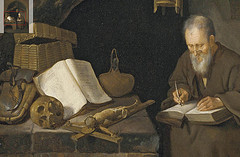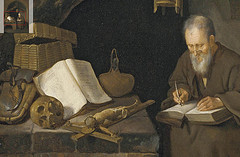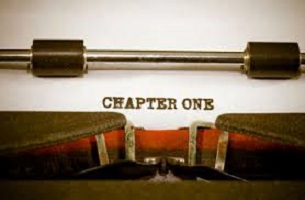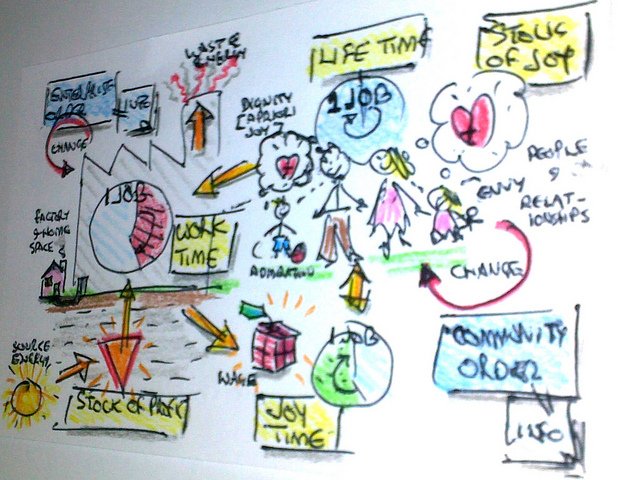This week’s post theme is ‘Working with Others’, and in keeping with that I wanted to write today about how baby steps lead to everything, and that once you take that first, hardest, scariest step, the rest of what you want just falls right into line.
I was pretty scared out of my mind when I started my Editing business, thinking that nobody would know I existed and nobody would even care. But I did it anyways. I made a website and started a blog, created a Facebook page and a LinkedIn profile, Twitter and Google+. I went to the bank and created a business account, just to be prepared. Those things, honestly, may have been the hardest part – preparing for something that you’re not sure is going to happen is a pretty big leap. I think that this is the easiest part for a lot of people. They buckle down, create the physical (or online) space for themselves, and ta-da! They’re established!
But I think what most people don’t realize is that the preparation is actually the hardest part. So many people don’t reach out, don’t get in contact with others, because there’s a common mode of thinking going around that you have to know people, important people, in order to get anything of real value in this world. And that’s just not true. How do you think those few you hear about who “know all the right people” got to know them in the first place? I’ll tell you right now that they weren’t born with those contacts.
Okay, some lucky few are actually born into circles where they have access to whomever and almost whatever they want. But for the majority of us, those meetings take place as the result of one baby step in the right direction – toward your goals. And that step, in my opinion, is just saying ‘hi’ and letting people know you exist.
It’s really just that easy. I’m still flattered when I see someone reaching out, saying they heard about me or saw something I posted, that they wanted to talk about their own books or working with me as their Editor. We never really know who’s out there until we pick up the phone, or open up the computer, or even walk down the street and give someone a smile and a how-do-you-do.
I remember when I found Laura Callender’s ad out calling for writers for CWC. I immediately contacted her and said I was really intrigued by the concept of CWC and wanted to know more. She responded that unfortunately there were not any openings for writers, but that a new project would be starting soon and she was looking for another Story Coordinator. So I just said yes. And our friendship grew rapidly into a super team of “administrators” for CWC, and I’m proud to say that working with her has been one of my favorite things in the last few years. Working with CWC is also one of the most exciting things I have to share with the other people I randomly meet to share skills and experiences.
Baby steps don’t just hold value for starting businesses, creating new relationships, or gaining more exposure. It works with your passions, too. I had a conversation the other day with another writer who was scared out of her mind to keep writing. She had an entire list written down of all her fears, about what continuing to write would mean to her, and whether or not her passion and her talent had any true value. Questions like: What if I’m not actually good? What if nobody likes my work? What if I never get published and I’ve wasted so much of my life on something that just ends up worthless?
I knew exactly what these fears felt like – had asked them of myself several times and several years ago. Sometimes fear is a great motivator (though I would never advise anyone to ‘be afraid’), but in instances like this it’s a crutch, a debilitation, and sometimes even a dependency. And that’s when taking baby steps is the most important thing you can do, both for your projects and your own sanity.
So I told this woman that if she let these questions hold her back from continuing to write and pursue her passion, she would never have the chance to prove these fears wrong. There were important questions here that were not being asked.
Do I still want this?
What can I do today that will bring me closer to my goal?
What have I done already that has made me proud?
So often we get caught up in the what-ifs, the large obligations of the future that scare us senseless yet are so far away that they will never even happen if we don’t do what needs to be done today to get there. Miraculously, it turns out that if you do the work, take the baby steps one day at a time, when the day comes that you reach that overwhelmingly intimidating finish line you’re already prepared for it. You’ve done the work, built your project, business, relationship, novel from the ground up, and on the way have amassed a wealth of experience and understanding that only makes sense after the fact.
We fool ourselves into thinking that we’re not good enough, that the beginning lasts forever and that the end is an impossible, terrifying ghost. I look back on the things I’ve done, the relationships and progress that I’ve made in doing what I love, and the hurdles that seemed the most difficult when I looked into the future actually turned out to be the easiest accomplishments.
I think so many more people would own their own business, or start a project, or write a book, if they really understood just how easy it is to keep going. Everybody knows these fears, and the best way to overcome them is to talk to those people, to put yourself out there and just be a human being. People like that. And when you start having fun it all makes sense why you’re doing it in the first place.










